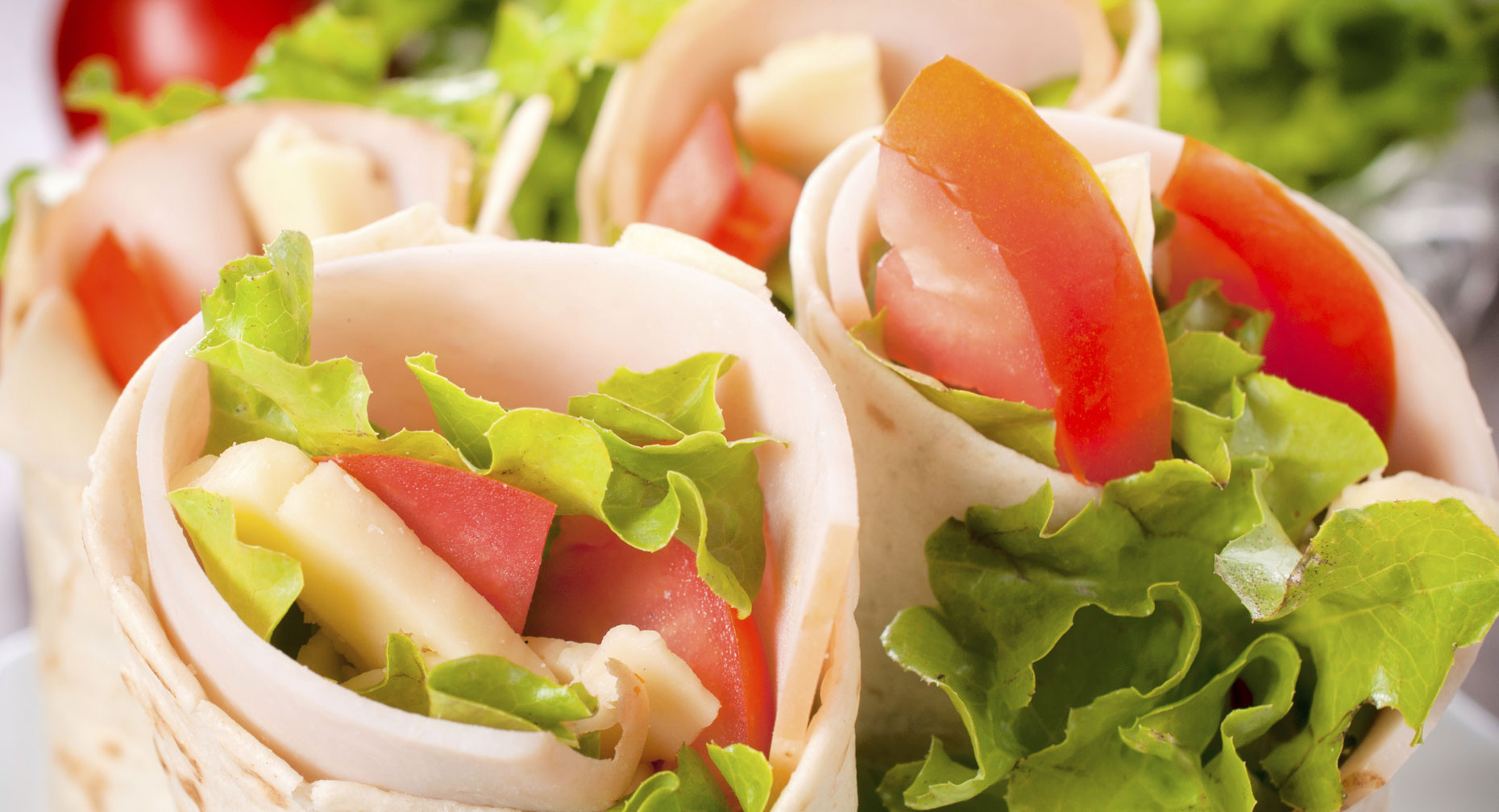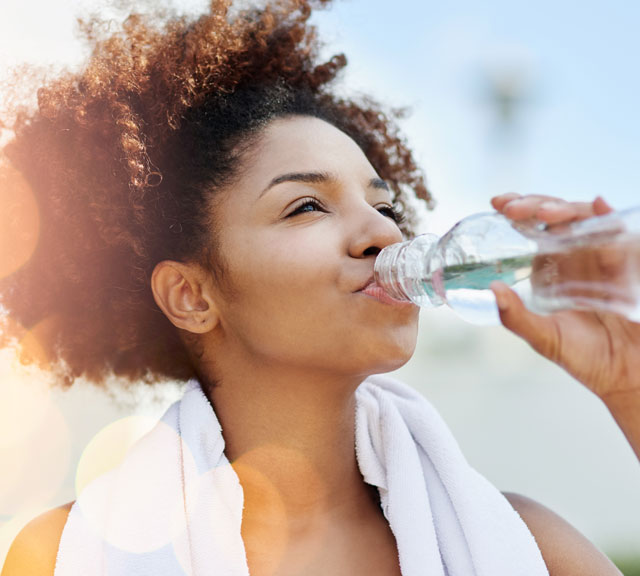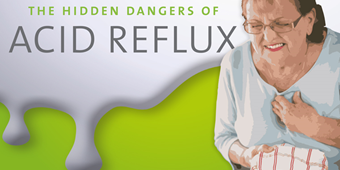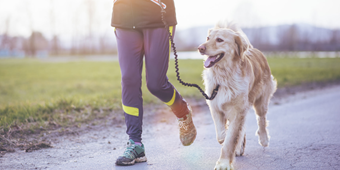How to Use Food to Finish Strong

Find Your Perfect Match
Answer a few questions and we'll provide you with a list of primary care providers that best fit your needs.
Good nutrition can make the difference between merely crossing the finish line and finishing strong.
That’s true if you’re an accomplished athlete or an amateur taking on new challenges, like a 5K, half marathon or other physically demanding sport, says Joshua Ordway, MD, of Franklin Family Practice.
A past qualifier for Olympic marathon trials, Dr. Ordway takes running seriously. But he cautions, “You don’t have to get too fancy or too gimmicky with what you’re eating, so long as you’re eating a nutritious, balanced diet.”
For athletic performance, good nutrition is built on a foundation of carbohydrates, to provide glucose for energy, and protein, to build strong muscles and recover from the stress of exercise. Staying hydrated also plays a critical role in fueling peak performance.
Dr. Ordway advises how nutrition drives you every step of the way, through training, during an event and recovery afterward.
Nutrition for Training
“The rule of thumb with training is that you don’t want to completely change your diet around before you know how the training’s going to affect you,” Dr Ordway says. He explains that if you make radical changes in your diet at the same time you’re ramping up your physical activity, “your GI (gastrointestinal) tract could get upset with you.” The effects could include loose stools, constipation, or both.
“Stick with what you know first of all. If you find that you’re getting abdominal pains or cramps or loose stools, then you can try to alter your diet a little bit.”
Training is the time for trial and error, he says, to find the nutritional formula that works for you.
Training also is the time to experiment with staying hydrated during physical activity. Especially for longer events – half marathons and longer – you’ll need to take in calories as you go with sports drinks.
But sports drinks can cause stomach upset. Ordway suggests, “To be easier on your stomach, you could take half and half water and sports drink.”
“You don’t have to get too fancy or too gimmicky with what you’re eating, so long as you’re eating a nutritious, balanced diet.”
Nutrition Before an Event
Avoid food the hour before an event, as digestion uses up energy you need to perform well.
Dr. Ordway advises, “If you’re going to have a snack or meal close to a run, avoid a fatty meal, because that’s not going to digest very well before the run.
“A carbohydrate meal is typically much more tolerated. Things like bananas or bagels are usually pretty good.” He recommends holding off on spreading peanut butter on a bagel until after you’ve crossed the finish line. “The fat in the peanut butter could upset your stomach. Until you know you can tolerate that, I’d really stay away from butter and peanut butter.”
He recommends, “Eat a normal diet the week before a race. Then the night before have a meal with carbohydrates, protein and vegetables, and you’ll be fine. But it’s really important to have that protein in there. It’s an important energy source and it’ll ensure you’ll have the building blocks to repair muscle damage” from the exercise.
Drinking plenty of water before an event is important, too. “You don’t want to go into a race with an empty hydration tank. As soon as you get up (the morning of a race), start hydrating.” He suggests a 20-ounce bottle of water, and before a marathon, sips of a sports drink, “to restore some of that glycogen that burned up overnight and to replenish water you lost overnight.”
Drinking a specific volume of water before an event, though, is not as important as passing what Ordway calls “the urine test.”
The color of your urine indicates whether you are sufficiently hydrated. “If you can get your urine clear, you’re well hydrated. Try to turn dark yellow urine to clear or light yellow.”
Nutrition During an Event

“Some marketing department years ago convinced people that sports drinks are healthy and you really need to load up on them for better performance,” Dr. Ordway says. “But you really don’t need sports drinks at all, unless it’s very hot or humid weather, where you’re sweating a lot, or you’re doing a half marathon or more. A lot of times sports drinks provide you more calories than you actually need.”
Water is especially important on hot, humid days, but not always necessary in cooler weather in shorter distances, such as the 5K or 10K.
“But for a half or full marathon and above, it’s a different story,” Dr Ordway says. “You need to hit a water station at least two or three times regardless of the conditions and really you need to hit some kind of calorie station (for a sport drink or carbohydrate gel to maintain energy-providing glucose levels) at least once in a half marathon and at least every 10K if not every three miles. That’s a situation where a sports drink is most appropriate.”
Besides providing calories, sports drinks replace electrolytes, essential minerals lost when you sweat.
If you’re a slower runner, completing a marathon in three to five hours, you may need more fuel, such as carbohydrate gels or sports beans, to supplement sports drinks and keep you going the distance.
Nutrition for Post-Event Recovery
“You do need to get protein in the first hour after a run, because that’s going to help replenish your nutrients and repair any muscle damage that you had during the run,” Dr. Ordway recommends. He suggests a peanut butter bagel or chocolate milk “within the first five minutes, that’s ideal to replenish the nutrients and repair muscles.”
Chocolate milk, besides providing protein, vitamins and minerals, can contain less sugar than a sports drink.
Find Your Perfect Match
Answer a few questions and we'll provide you with a list of primary care providers that best fit your needs.
Source: Joshua Ordway, MD, Franklin Family Practice; Academy of Nutrition and Dietetics; NCAA; FamilyDoctor.org





